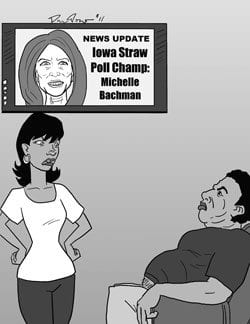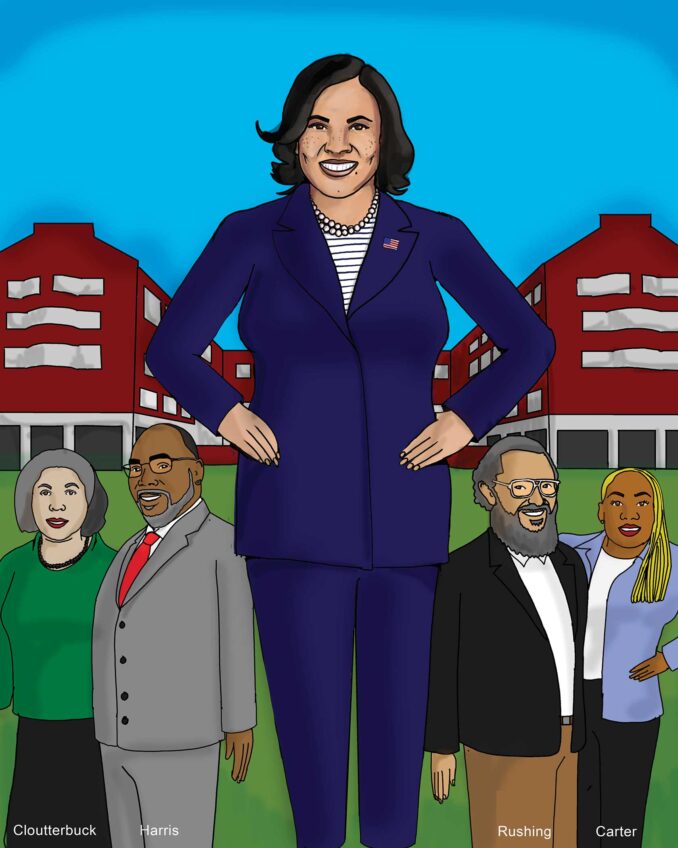
The power of one
| “Well, if we continue to just sit on the couch, then people like that will continue to win.” |
A common human trait is to look for a leader during stressful, critical times. When the problem is the threat of foreign aggression, the people look for a military leader. If the chosen general is victorious he is usually inundated with accolades. Both George Washington and Dwight D. Eisenhower were elected president.
The issue of leadership becomes much more complex when the danger does not come from an external force, but is a profoundly hostile difference of opinion on the political policies within the nation. The United States is in the midst of such a conflict. The battle to raise the debt ceiling demonstrated a willingness of some Congressmen to risk the international credit standing of the country.
Under our system of government the president is elected to serve all the people, regardless of their political affiliation. That responsibility is difficult to fulfill when political opinions are in such conflict. Also, the power of the president to act is substantially delimited by Congress. The House and the Senate hold the power of the purse. The president can initiate programs and spend only those funds that have been approved by Congress.
Apparently oblivious to these constitutional restraints, liberal Democrats have been calling for leadership from the president. They ignore the reality that under our system of government the power ultimately rests with the people. However, there has been little action by the liberals to counter the growth of the Tea Party movement. The Tea Party essentially won the 2010 midterm congressional election.
Of the 435 members of the House, now 240 are Republicans and 192 are Democrats. There are 51 Democrats in the Senate, with 47 Republicans and 2 Independents. Because of the filibuster rules in the Senate it takes 60 votes to have real voting control. A simple majority will assure only administrative control of that body.
Liberals would like to sit back and watch the president battle as the champion for the middle class and the working man, but this is a time for the people to step forward. The action of even one committed individual can have great power. The whole world was inspired by videos of the Chinese man who stood in front of advancing tanks in Tiananmen Square in Beijing in June of 1989. In his so called “moment of self-transcendence,” the anonymous tank man became an international symbol of the price of freedom.
More recently, a 26-year-old Tunisian street vendor, as a protest to the constant humiliation and corruption of public officials, immolated himself in front of their offices in Sidi Bouzid, Tunisia on Dec. 17, 2010. His death led to the Tunisian revolution of 2011 and the ouster of President Zine El Abidine Ben Ali in January. This was the beginning of the Arab Spring that spread to Egypt, Libya, Syria, Yemen and Bahrain.
This is not to suggest that liberals need a martyr, but it is clear that a united protest by the people can be effective. With an organized and massive protest of liberals to the extreme positions of some conservatives, a more reasonable approach will become appealing to public officials facing re-election.
Leadership by President Obama can be helpful but it alone cannot win the day. Many in Congress seem committed to preventing his re-election rather than focusing on the national interest. This is no time for the electorate to eschew public protests and a more active political role.






